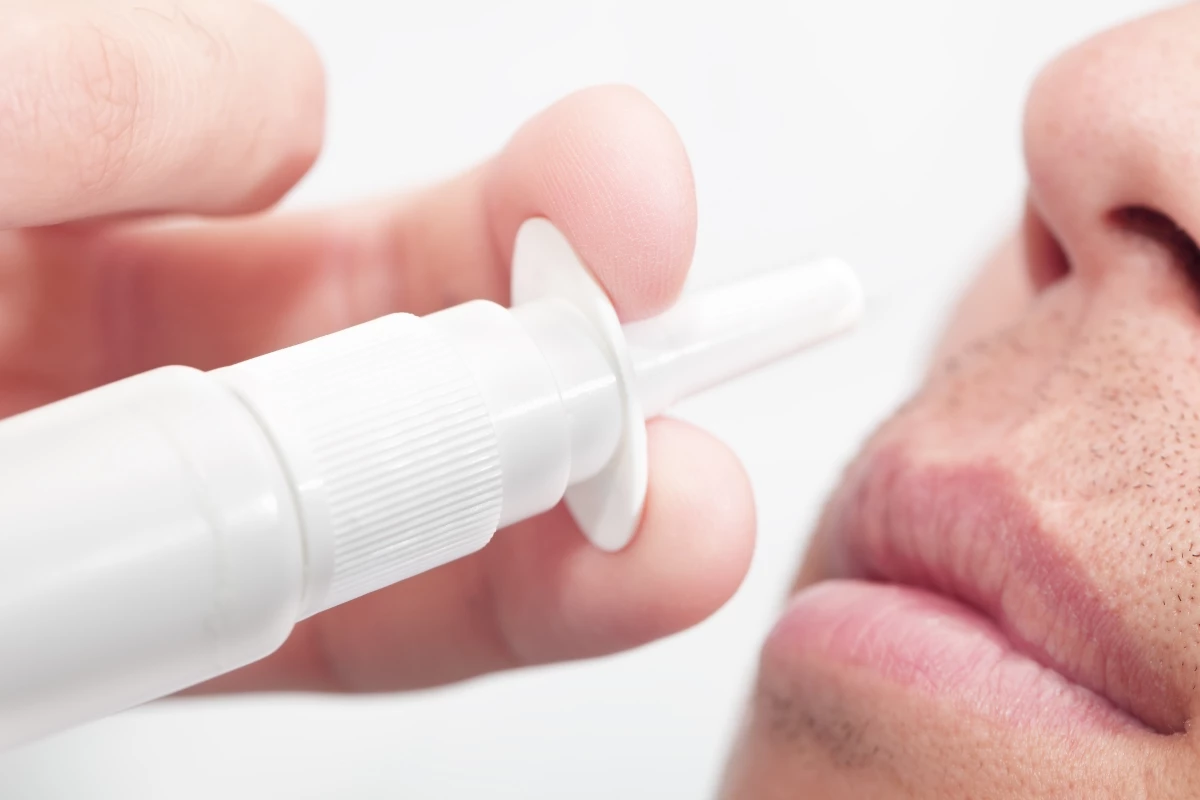A preliminary human study has shown promising results from an experimental nasal spray developed to treat sleep apnea. The treatment is still years away from clinical use, but the early findings suggest a quick nasal spray before sleep could effectively keep a person's airways open throughout the night.
“OSA [obstructive sleep apnea] is one of the most common sleep-related breathing disorders, with an estimated one billion sufferers, and when untreated is associated with major health and safety consequences," explained Danny Eckeart, senior author on the new study from Flinders University. “At the moment, there are no approved drug treatments for OSA. However, with advances in our understanding of the different reasons people get OSA, the potential for effective new medications is growing stronger each year.”
The most common treatment for sleep apnea is a mechanical device called a CPAP (continuous positive airway pressure) machine. The device essentially uses pressurized air to keep a person's airway open while they sleep.
CPAP devices can be a very effective tool for managing sleep apnea but they are notoriously bulky and uncomfortable. Nearly one in 10 people stop using their device after just one night, and around 50% don't use the treatment beyond a year.
While there is plenty of ongoing work looking for sleep apnea drug treatments, so far no medication has been officially approved. This new research set out to test a novel drug designed to increase pharyngeal dilator muscle activity.
“The drug we tested is designed to target specific receptors that are expressed on the surface of the upper airways, triggering them more easily to activate the surrounding muscles to keep the airway open during sleep," said lead author on the study, Amal Osman.
This preliminary human study recruited 12 participants with sleep apnea, and each volunteer completed four overnight sleep studies. At the beginning of each night's visit they received either a placebo nasal spray, a nasal spray with the novel drug, nasal drops of the novel drug, or a direct endoscopic application of the drug. The primary goal of the study was to determine what mode of applying the drug led to the most effective result.
The initial results were strong, with the novel drug generating sustained opening of airways across a whole night's sleep. Most importantly, the results were consistent regardless of application method, meaning a simple nasal spray could be the easiest way to deliver the treatment.
The study was funded by the drug's pharmaceutical developer, Bayer, and Eckeart does serve as an advisor to the company. However, the trial was conducted independently through the Flinders University Sleep Health lab. Osman said there is still plenty more work to do but these early results do affirm targeting these receptors for sleep apnea could be an effective treatment avenue.
“Although a small study, our findings represent the first detailed investigation of this new treatment in people with OSA, with promising results,” said Osman. "While there’s still a long way to go in terms of clinical testing and development, our study shows targeting these receptors may be a promising avenue for future treatments.”
The new study was published in the journal Chest.
Source: Flinders University




